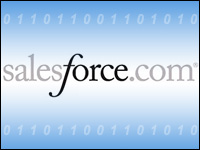
A miracle year comes along very rarely, though any single year could be one depending on the subject matter. For example, as a member of Red Sox nation, 2004 will always be a miracle year for me, because my team won the World Series after 86 years of futility — the Cubs are still waiting for theirs.
The idea of a miracle year, or what highbrows refer to in Latin as an “annus mirabilis,” is usually reserved for more exalted pursuits. Isaac Newton is widely described as having his annus mirabilis in 1665-66 when he worked out the laws of gravitation and some other concepts that led directly to our understanding of classical mechanics and informed our understanding of nature for more than two hundred years.
Similarly, Albert Einstein had his in 1905 when he brought forth his theory of special relativity along with three other major advances in physics that laid the foundation for much of what followed in physics and engineering during the rest of the 20th century.
It is always easy to identify the significance of a year in which everything seems to change in retrospect, but it is much harder to point a finger at significant change while it is happening. With so much change swirling around us, it is sometimes difficult to choose among major advances. It is said that human knowledge doubles every decade now — an incredible rate when you think about it.
The New Shape of Things to Come
I would like to suggest that 2007 might someday be viewed as an annus mirabilis for the software industry, though my reasoning is a bit unconventional. On Monday morning, the Wall Street Journal ran a front page story about a possible new relationship between Salesforce.com and Google.
Monday was also the day Salesforce.com held its first developers conference in Santa Clara, Calif., and announced its service-oriented architecture (SOA) on-demand service, which eliminates the complexity that comes with trying to build it all in-house.
So, guess what issue had reporters ringing my cell phone? Yup, the Google story that Salesforce CEO Marc Benioff would neither confirm nor deny except with a smirk. You’ll have to wait until June 5th, I am told, to get definitive information on the Google rumor.
You know you are having an annus mirabilis when the press can’t keep up with the news you generate.
It’s an annus mirabilis, all right. After decades when nothing fundamental changed in the way that software was made, sold, delivered and serviced, Salesforce.com has managed to stage a series of introductions that — barring some major catastrophe — will permanently reshape the industry.
Beyond CRM
You could say that on-demand computing caused a disruptive innovation nearly a decade ago, and that nothing else has upset the apple cart since then, but there I would disagree. The initial disruption caused by Salesforce.com and its cohorts has been echoing throughout the industry and reverberating with every new announcement, but the number and type of announcements that are coming together in 2007 make this year a candidate for the title of “miracle year.”
In 2007, Salesforce.com broke the connection between its on-demand CRM (customer relationship management) service and its application development tools to focus on application development and deployment for the software industry at large. Moreover, the company had the good sense to ensure that it was not simply delivering a new technology to the market.
Importantly, it actually built an infrastructure that included a way for third parties to become involved in active development, a marketplace for them to sell and deliver their wares, and — later on — a mechanism for capturing revenue that parallels the conventional software industry in all important details.
It has also founded a high-level school for new companies and entrepreneurs to set up their businesses: the Salesforce Incubator. With all that, Salesforce.com has fundamentally altered the way we think about, develop, deploy and use enterprise software — and the number and type of applications available goes way beyond CRM or even the front office for that matter.
The Minds of Oracle, SAP and Microsoft
I expect that over the next 18 months we will see a workable ERP (enterprise resource planning) solution take shape on the AppExchange as well. Many people have wondered aloud why Salesforce.com has not yet entered the ERP market. Parker Harris, Benioff’s cofounder and Salesforce.com’s guru, gave a few insights at a press lunch on Monday.
First of all, he said that the company has no interest or plan to do an ERP system. Harris also said that ERP would be a tough slog, because companies are even more conservative about their ERP data than they once were about their customer data, so there is still some convincing to do. Last of all, I think Salesforce.com expects that development effort to come organically from the partner community.
The other thing about an annus mirabilis is that it tends to destroy the old order. We never looked at the sun and the moon the same way after Newton and Einstein gave us a whole new way to think about the nature of space, time and reality. All the Salesforce.com news has to make you wonder what they’re thinking at Oracle, SAP and Microsoft.
Denis Pombriant runs the Beagle Research Group, a CRM market research firm and consultancy. Pombriant’s research concentrates on evolving product ideas and emerging companies in the sales, marketing and call center disciplines. His research is freely distributed through a blog and Web site. He is working on a book and can be reached at [email protected].
























































